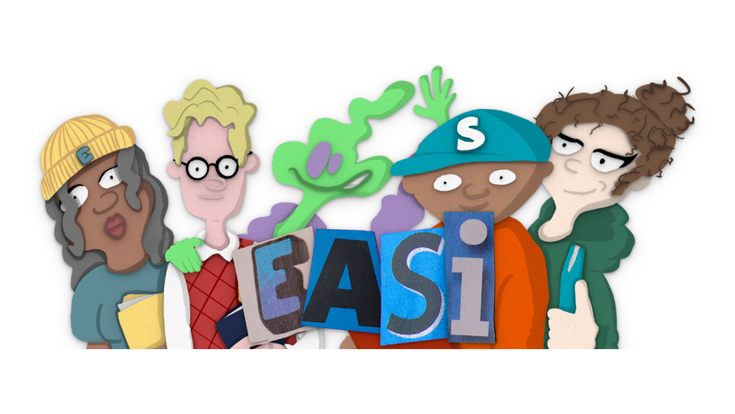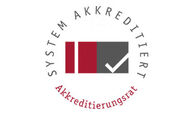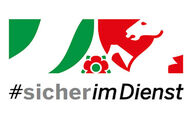Reason for the teaching project/ Challenge
Writing a scientific text is part of every study program and can be a great challenge for many students, since students start their studies at HSNR with heterogeneous biographical and professional experiences. Student Degree Programme Counselling perceives a need for individual writing counselling and supportive teaching formats (e.g. tutorials, workshops, etc.). Some of the students find it difficult to develop an understanding of academic work as well as the academic writing process.
The offerings of the faculties on the topic vary widely. Some faculties offer courses and seminars on scientific writing, but most of them take place at the beginning of the studies or are not attended by the students in time. At the time of writing, these courses may already have taken place several semesters ago or have not yet been attended. Especially the writing of the thesis is a big challenge for many students, because scientific writing is practiced very little or not at all during the studies. In recent years, Student Degree Programme Counselling, together with other areas of the university, has been looking at how the topic of "scientific writing" can be promoted centrally but still individually at our university.
Concept and solutions of the teaching project
The university-wide Moodle course "EASI - Scientific Writing Made Easy" is intended to provide support for the individual introduction to scientific writing. It is intended to provide a location- and time-independent offering that, in addition to regular courses, supports students in developing an understanding of scientific work at universities as well as in practicing the scientific writing process. The course "EASI - Scientific Writing Made Easy" is being developed as a cross-departmental Moodle course that conveys the content of scientific writing in a practical and clear manner and supports the promotion of the corresponding competencies with exercises, self-tests, interactive elements, examples, etc.
Based on the already existing EASI course "EASI - Studying made easy", this Moodle course primarily aims at self-study by running the course independently (asynchronously) independent of time. The concept of the online course takes up the structure of the already existing EASI course: Individual topic sections (modules) with content relevant to the target group are developed, which are conveyed in practical orientation texts, comics/videos and interactive working aids. In terms of content, the topic sections build on one another and are based on the sequence of the scientific writing process:
Typical sequence of a scientific paper Framework conditions of a scientific paper Orientation: Finding a topic and posing a question Drawing up a schedule Research and reading: Working with literature and sources Structure of a paper Rough draft and writing process Getting feedback and revising After submission: debriefing and reflection
Goals
With the Moodle course we want to enable all students of the university to have the same prerequisites as well as to complement and support the faculties in their work. Therefore, the course can be used individually by students and can be used in a supportive way during the introduction weeks, in teaching education or in advising. Student Degree Programme Counselling will embed the course in academic writing counselling. In addition, the EASI course can be integrated into various courses (especially in the introductory phase of studies) as needed. A transfer into the faculties and the consideration of the needs of these should be possible.
Advantages of the teaching project
The benefit for students is that they can usethe course individually, flexibly in terms of time and space, and can access it throughout their studies. Within the course, students can work on the chapters according to their needs and receive (in)direct feedback on their own learning status.
The benefit for lecturers lies in the demand-oriented integration into or supplementation of courses. On the one hand, you can refer to the Moodle course as an optional offeror use the course as a supplement to the course (e.g. in an asynchronous self-learning phase with exercises). On the other hand, individual contents can also be adopted for one's own teaching education and, if necessary, adapted or expanded .
Methods and media
The structure of the individual chapters is based on the E-A-S-I structure (the four letters stand for individual areas within a chapter):
- E - Entdecke!" (Discover! ) is an introductory comic that fits the topic and has a storyline that runs through the entire course.
- "A - Alles klar?" serves as a self-reflection tool by offering exercises and self-tests to check the individual level of knowledge and competence.
- Under "S - That's it!", methods and tips are presented, above all there are clear explanatory videos, practical worksheets and interactive elements.
- "I - Informed!" offers supporting facts, links and tips on the respective topic and draws particular attention to the differences at the faculties.
The Moodle course offers students individual learning paths in their exploration of the various topics. Particular emphasis is placed on interactive exercise and feedback opportunities. In addition, there are a number of tool tips as well as studi-tips from other students. Also included in the course is a visual display of learning progress using the "Level Up!" block. This is intended to have a motivation-increasing effect, since self-study demands intrinsic motivation to a particular degree.
Stumbling blocks
- The claim to develop a course on scientific writing for use in all faculties is also accompanied by the challenge of trying to do justice to all faculties and subject cultures as far as possible. Here, we engaged faculty through a survey at the outset as well as personal conversations during.
- There are several approaches to incorporating feedback opportunities for students into the Moodle course. We incorporated student experiences/tips during the creation process and tried to take advantage of Moodle's capabilities (e.g., small tests, interactive elements with H5P, forum, etc.).
Recommendations
- The involvement of students in the development of the online course proved to be particularly helpful (especially in the design of the introductory scenarios as well as the study tips). This made it possible to develop a course that is particularly close to the students.
- Especially in digital learning environments it is important to offer sufficient feedback possibilities on the learning status as well as exchange spaces for students.
- In principle, when creating a university-wide Moodle course that can be used in all faculties, it is important to take into account the different requirements of the respective faculties - a claim to completeness or correctness of the Moodle course cannot be given and is not the goal! Here, transparent communication with the stakeholders of the faculty is especially important to prevent false expectations or misunderstandings.
Links / Notes
Direct link to the Moodle course "EASI - Scientific Writing Made Easy": will follow soon
If you would like to integrate the course into your course, please feel free to contact your media didactician at the faculty.
Participants
Sandra Dölling-Trapp, Irina Hörmann, Solange Landau, Eva Malecha-Konietz and Prof. Dr. Eva-Ellen Weiß. The project was actively supported by student assistants who helped create the comics and design the Moodle course: Lukas Braun and Joshua Hinz.



















